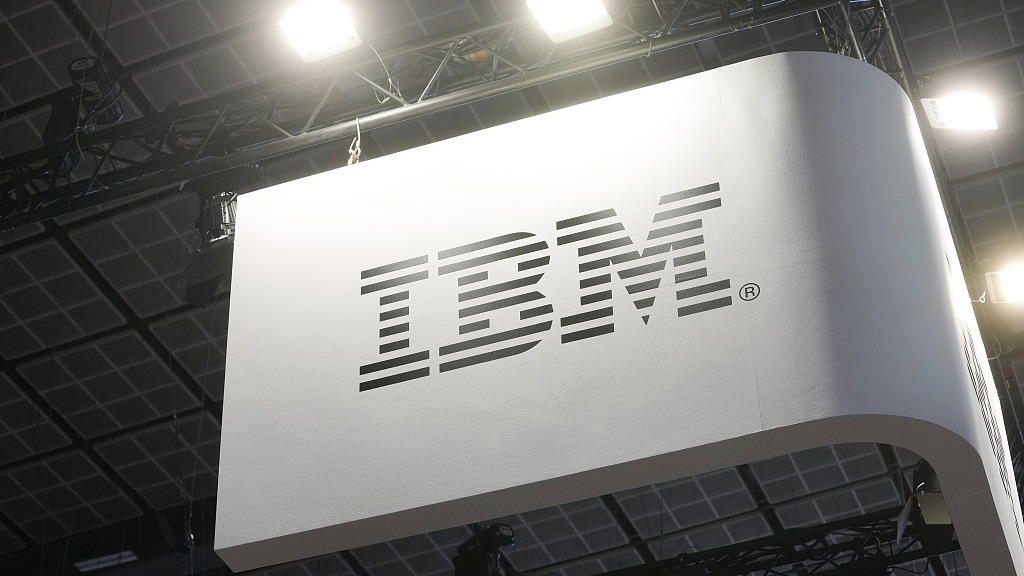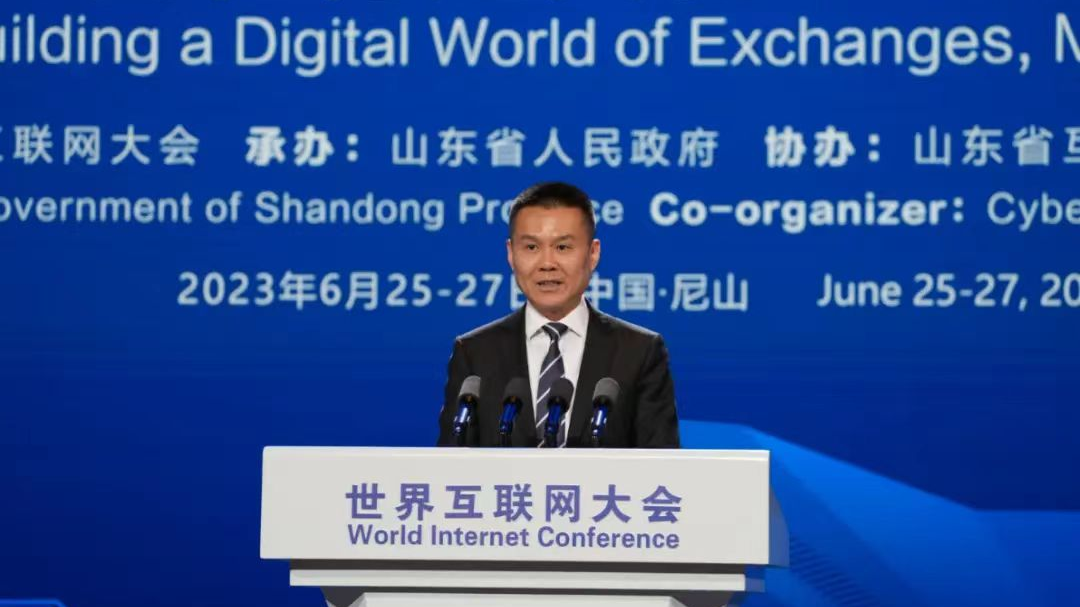
The IBM logo is seen at the VivaTech show in Paris, France, June 14, 2023. /CFP
The IBM logo is seen at the VivaTech show in Paris, France, June 14, 2023. /CFP
International Business Machines (IBM) Corporation's introducing artificial intelligence (AI) and data platform as Watsonx further demonstrates its commitment to continuing its leadership in AI for business that began with the introduction of Watson technology in 2011, said Chen Xudong, chairman and general manager of the IBM Greater China Group on Tuesday.
He made the remarks when CGTN asked how IBM would win back its position with Google and Microsoft during the World Internet Conference (WIC) Nishan Dialogue on Digital Civilization.
When addressing the conference, Chen again mentioned Watsonx, a generative AI platform IBM launched last month, with the promise to help enterprises scale and accelerate the impact of the most advanced AI with trusted data.
The tech giant stunned the world in 1997 when its Deep Blue computer defeated a world chess champion, and its supercomputer Watson wowed the tech industry again by winning against two champions on a TV quiz show in 2011, demonstrating its capabilities in AI-powered speech recognition and transcription.
It showed growing language skills that AI was starting to make in 2019 with an AI machine built for debate, though it lost to a human.
With the promise of offering cloud-based access to supercomputers to deliver tailored insights to physicians, the company launched a Watson Health program in 2015, but only had limited success.
However, the company's efforts in AI never stopped. According to a statement on its website, the software and consulting company saw a profit and revenue increase in the first quarter this year due to its hybrid cloud platform and enterprise-focused AI.
"The leading companies for the next decade or two will be the ones that decide they will be AI first," Chen said.
It is estimated that by 2030 human beings will enter a new era of human-machine collaboration with the rapid advance of AI, he added.
We are "well positioned to help companies thrive in the new AI era," said Chen. "We have one of the most comprehensive portfolios to deploy AI in business."
"Watsonx enables them (enterprises) to train, tune and deploy AI models, including foundation models and machine learning capabilities, across their organization with trusted data, speed and governance," said Chen.
"Watsonx is not consumer AI like ChatGPT. It is an AI and data platform designed from the ground up for enterprise AI," he said, which is to help companies deploy AI with the platform.

Chen Xudong, chairman and general manager of the IBM Greater China Group, addresses the World Internet Conference Nishan Dialogue on Digital Civilization in Qufu, east China's Shandong Province, June 26, 2023. /WIC
Chen Xudong, chairman and general manager of the IBM Greater China Group, addresses the World Internet Conference Nishan Dialogue on Digital Civilization in Qufu, east China's Shandong Province, June 26, 2023. /WIC
The company's design for AI
Apart from the new generative AI platform, with which two of its three components will be available in July and one in the fourth quarter this year, the company has deployed other operations related to AI.
For example, its hybrid cloud platform has been optimized for AI workloads, from the creation of new, large-scale models to tuning of pre-existing models, according to Chen.
The company has also built a cloud-native supercomputer for the specific purpose of advancing large-scale AI, which can help with creating foundation models for companies, he said.
In addition, according to the company, it will bring generative AI commentary and AI draw analysis to the Wimbledon Championships to be held in July, producing tennis commentary for all video highlights packages during the game and providing statistics to define how favorable the path to the final might be for each player in the singles draw.
Correspondingly, the company's CEO Arvind Krishna said that the company is expected to pause hiring for roles it deems could be replaced by AI in the coming years, approximately 7,800 jobs, reported Bloomberg News in early May.
AI regulation
As to AI regulation, Chen believes each time an organization falls short of the standards of trustworthy AI, it represents a new obstacle to a future where as many people as possible benefit from this most transformational of technologies.
"Businesses that adhere to ethical principles in developing and using AI will be better positioned for compliance with impending regulations and, potentially, will avoid the cost of redesigning or recreating models that were created without AI ethics principles and human values in mind," he said.